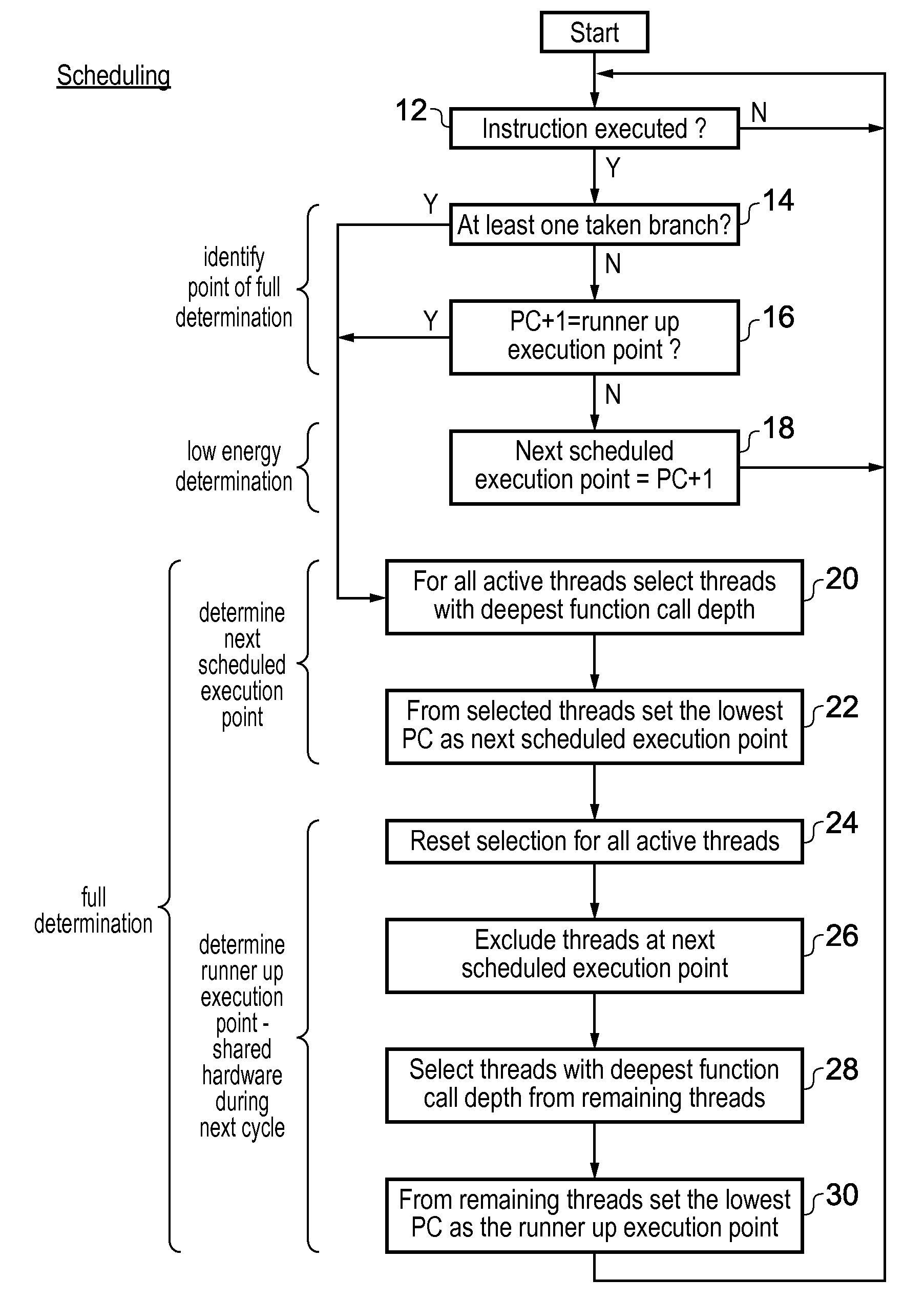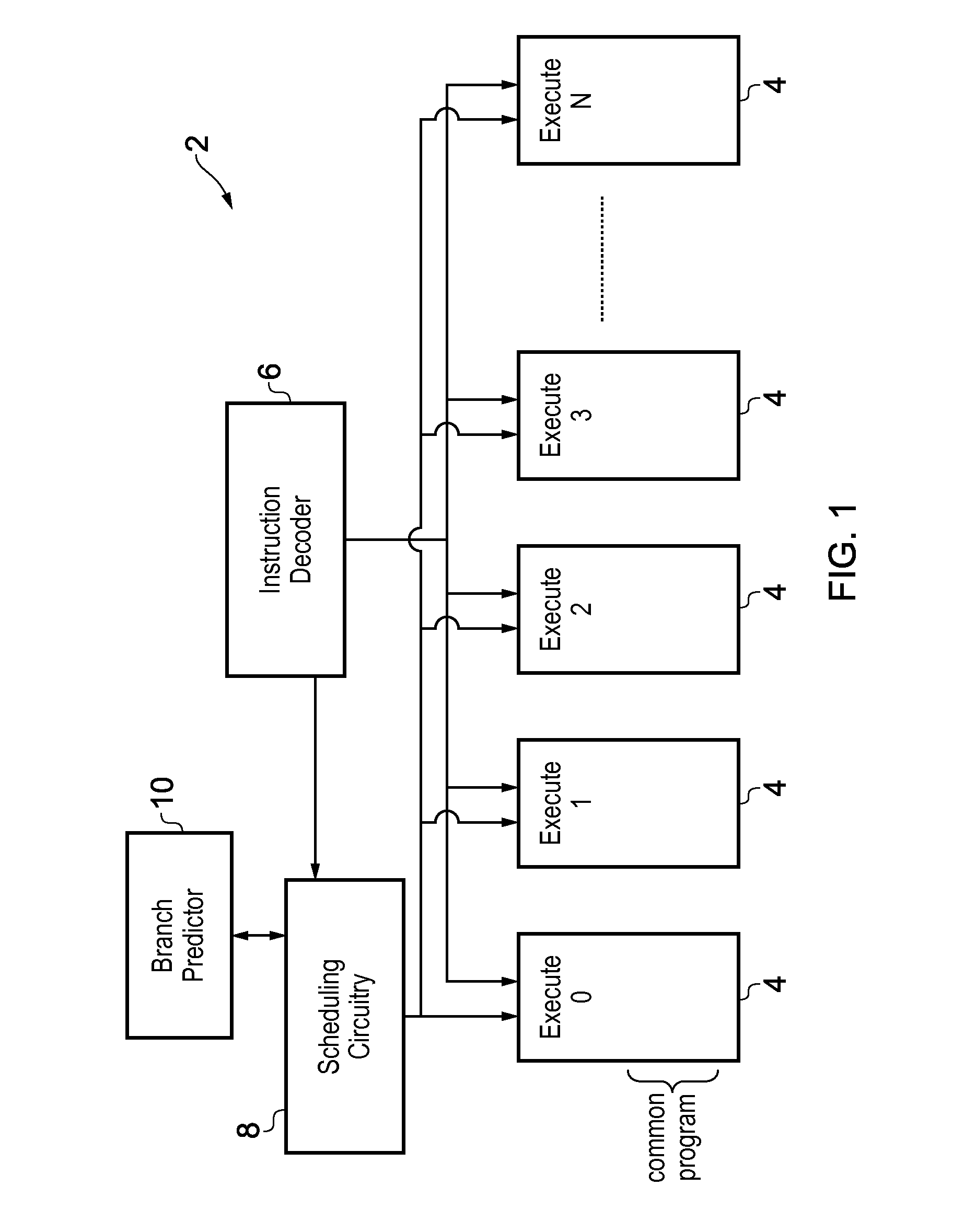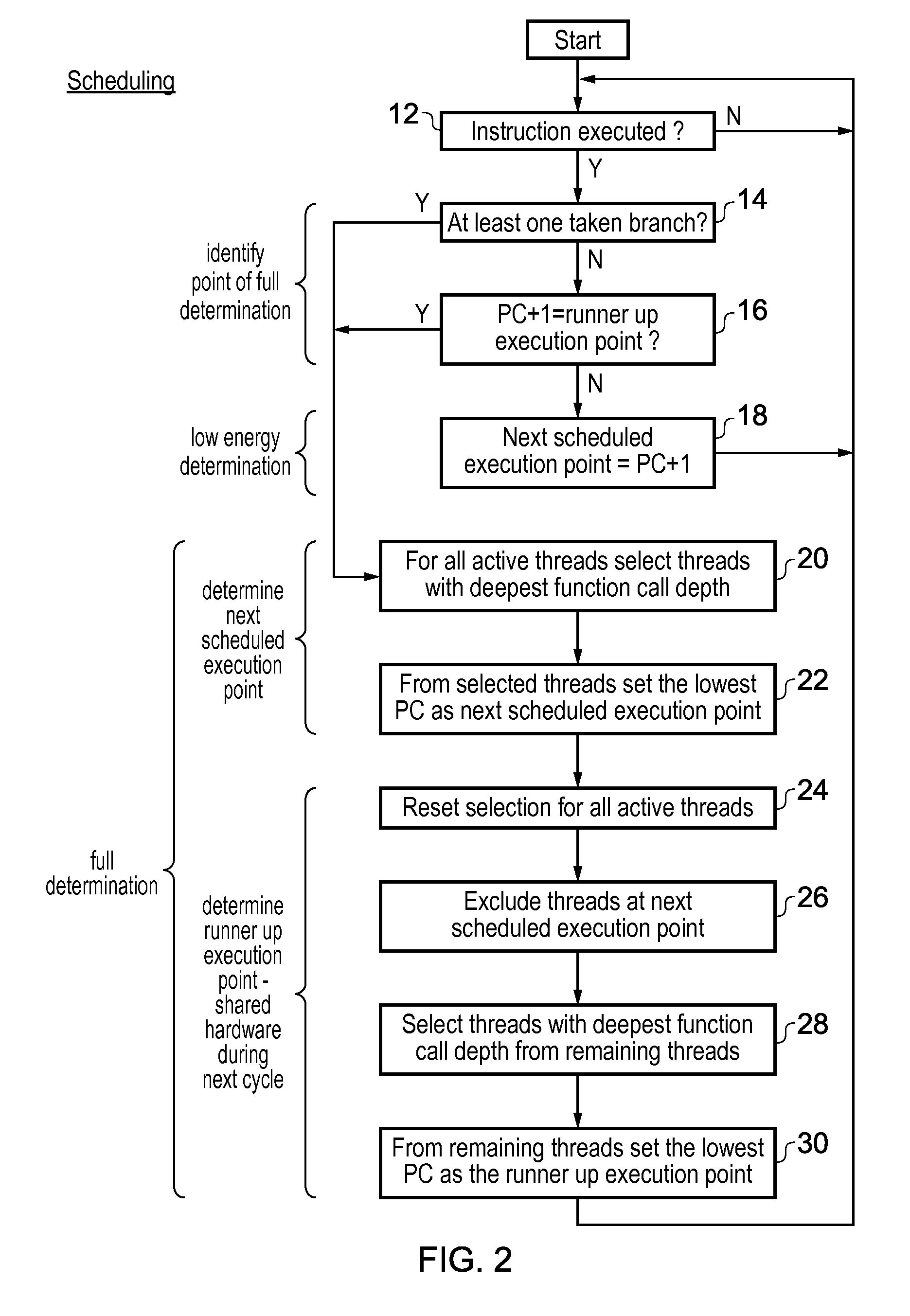Scheduling program instructions with a runner-up execution position
a program instruction and execution position technology, applied in the field of data processing systems, can solve problems such as thread dropping out of lockstep operation, and achieve the effects of reducing overall workload, increasing system efficiency, and improving efficiency
- Summary
- Abstract
- Description
- Claims
- Application Information
AI Technical Summary
Benefits of technology
Problems solved by technology
Method used
Image
Examples
Embodiment Construction
[0030]FIG. 1 schematically illustrates a SIMT processor 2 including a plurality of execution circuits 4 each executing a common program. The SIMT processor also includes instruction decoder circuitry 6, scheduling circuitry 8 and branch prediction circuitry 10. The different execution circuits 4 execute a common program.
[0031]The scheduling circuitry 8 is responsible for determining which will be the next instruction to be executed (if any) by each of the execution circuits 4 as will be described further below. The scheduling circuitry 8 calculates both a next scheduled execution position and a runner up execution position when it is performing a full determination of the scheduling. At points within the program flow where a full determination is not required, the scheduling circuitry 8 simply increments the program counter so as to indicate the next program instruction to be executed.
[0032]The branch prediction circuitry 10 serves to identify branch instructions decoded by the inst...
PUM
 Login to View More
Login to View More Abstract
Description
Claims
Application Information
 Login to View More
Login to View More - R&D
- Intellectual Property
- Life Sciences
- Materials
- Tech Scout
- Unparalleled Data Quality
- Higher Quality Content
- 60% Fewer Hallucinations
Browse by: Latest US Patents, China's latest patents, Technical Efficacy Thesaurus, Application Domain, Technology Topic, Popular Technical Reports.
© 2025 PatSnap. All rights reserved.Legal|Privacy policy|Modern Slavery Act Transparency Statement|Sitemap|About US| Contact US: help@patsnap.com



